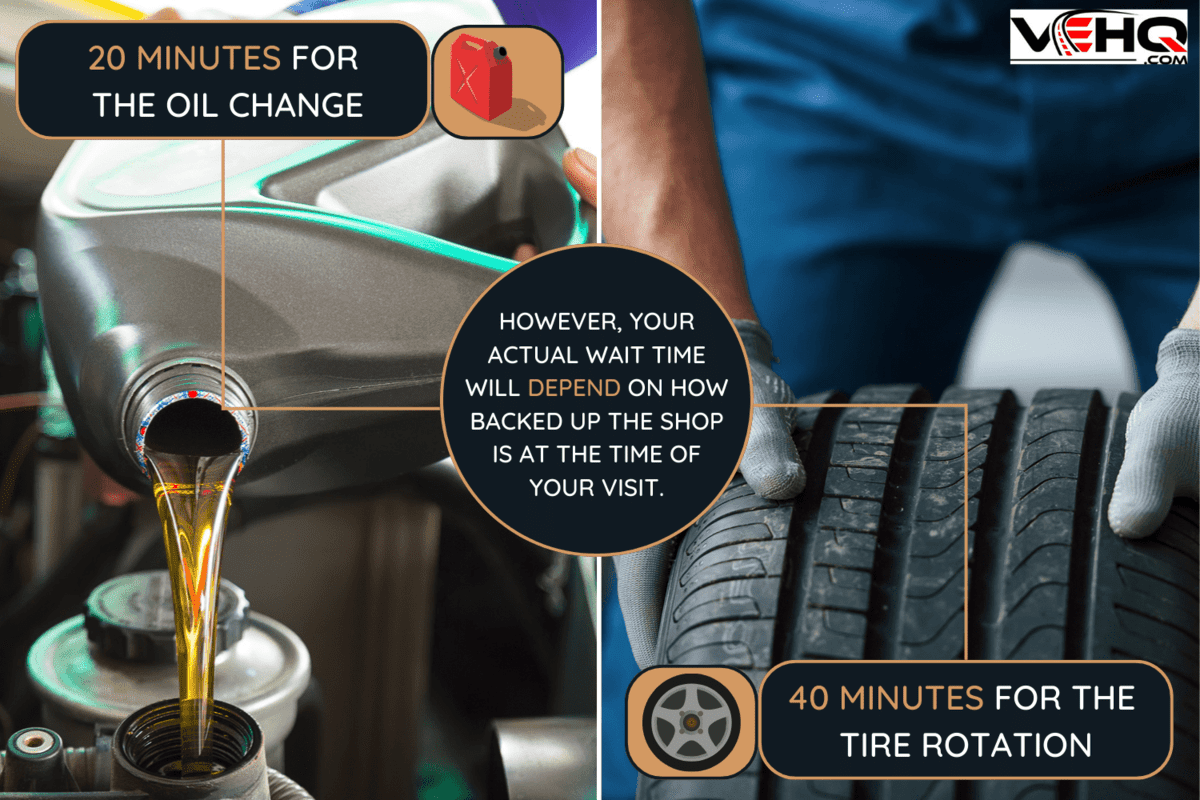Where To Get Oil Changed And Tires Rotated

Maintaining your vehicle involves several key procedures, and among the most fundamental are regular oil changes and tire rotations. These services directly impact engine longevity, fuel efficiency, handling, and overall safety. Choosing the right location for these services is crucial, and this article delves into the various options available, highlighting the pros and cons of each to help you make an informed decision.
Dealership Service Centers
Opting for a dealership service center, particularly for newer vehicles still under warranty, offers several advantages. Dealership technicians are factory-trained and possess in-depth knowledge of your specific make and model. They are familiar with Technical Service Bulletins (TSBs) – official manufacturer communications detailing known issues and repair procedures – and often use Original Equipment Manufacturer (OEM) parts, ensuring compatibility and maintaining your vehicle's warranty compliance. For example, a BMW dealership technician changing the oil in a BMW engine will be intimately familiar with the specific oil viscosity requirements (e.g., 0W-30 or 5W-30) and any specific nuances to the oil change process.
However, dealership service typically comes at a premium. Labor rates are often higher compared to independent shops. Schedule availability might also be more limited, especially for popular service times. Additionally, while the use of OEM parts is a plus, some owners might prefer aftermarket options with potentially better performance or value.
Independent Automotive Repair Shops
Independent automotive repair shops represent a broad category, ranging from small, family-owned businesses to larger, multi-bay facilities. The key advantage here is often cost. Labor rates are generally more competitive than dealerships, and you may have more flexibility in choosing between OEM and aftermarket parts. Many independent shops specialize in certain makes or types of repairs, allowing them to develop expertise in specific areas. For instance, a shop specializing in European cars may be a better choice for your Audi than a generic chain store.
Finding a reliable independent shop requires due diligence. Seek recommendations from friends, family, or online reviews. Look for shops certified by organizations like ASE (Automotive Service Excellence), indicating that their technicians have met industry-recognized standards. A good shop will also be transparent about pricing and willing to explain the work being performed.
National Chain Auto Service Centers
National chain auto service centers, such as Firestone, Goodyear, and Midas, offer convenience and accessibility. They typically have numerous locations and extended hours, making it easier to schedule service appointments. They also frequently offer discounts and promotions on services like oil changes and tire rotations. Many chains offer standardized services and warranties across their locations, providing a degree of consistency.
However, quality can vary significantly between locations and even between technicians at the same location. While some chains employ highly skilled technicians, others may prioritize speed and volume over thoroughness. Thoroughly research the specific location's reputation before entrusting your vehicle to them. It's also crucial to carefully review the service invoice and understand the work that was performed. Be wary of upselling – the practice of recommending unnecessary services or repairs.
Quick Lube Centers
Quick lube centers, like Jiffy Lube and Valvoline Instant Oil Change, specialize in rapid oil changes and other basic maintenance services. They are designed for speed and convenience, often offering drive-through service without requiring an appointment. These centers are ideal for those seeking a fast and affordable oil change and tire rotation.
However, the rapid pace can sometimes compromise quality. Technicians may be less experienced or less thorough than those at dealerships or independent shops. The focus on speed can also lead to missed issues or improper procedures. It's essential to verify that the correct oil type and filter are used and that all other checks (fluid levels, tire pressure) are performed adequately. Consider the use of synthetic oil vs. conventional oil based on your vehicle's requirements and your driving habits.
DIY (Do-It-Yourself)
For mechanically inclined individuals, performing an oil change and tire rotation at home can be a cost-effective option. However, it requires the necessary tools (wrenches, jack stands, oil filter wrench, torque wrench), knowledge, and a safe workspace. Proper disposal of used oil and filters is also essential to avoid environmental damage. Consulting your vehicle's service manual is critical for ensuring correct procedures and specifications, such as proper torque settings for lug nuts after a tire rotation.
While DIY can save money, it's not for everyone. Incorrect procedures can damage your vehicle, void your warranty (if applicable), and pose safety risks. If you're unsure about any aspect of the process, it's best to leave it to a professional.
Ultimately, the best place to get your oil changed and tires rotated depends on your individual needs and preferences. Consider factors such as cost, convenience, expertise, and your comfort level with automotive maintenance when making your decision. Research and compare options to ensure you're entrusting your vehicle to a qualified and reputable service provider.
